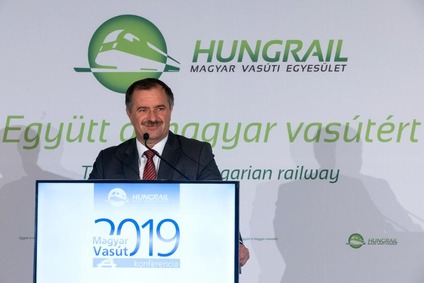
From the government Minister László Palkovics and dr László Mosóczi State Secretary for Transport Policy (Ministry for Innovation and Technology), Norbert Izer State Secretary for Tax Affairs (Ministry of Finance), dr Balázs Fürjes State Secretary for the development of Budapest and the metropolitan agglomeration (Prime Minister’s Office), János Lázár Government Commissioner for the Coordination of the Development of the Szeged–Szabadka–Baja railway line, dr János Fónagy Deputy Minister, State Secretary for Parliamentary Affairs in relation to National Assets, (Government Office of the Prime Minister) and Gáborné Pölöskei Deputy State Secretary for Vocational Training and Adult Training (Ministry for Innovation and Technology) presented government strategies with regards to railway development. They highlighted railway’s role in strengthening the economy and the importance and the imminent implementation of investments. A well-functioning railway service can solve regional problems of the job market.
Dr Róbert Homolya, President-CEO of MÁV Zrt., Szilárd Kövesdi General Manager of GYSEV Zrt. and Imre Kovács, Chairman of the Board of Rail Cargo Hungaria Zrt., Member of the Board of Rail Cargo Austria AG summarised the strategies of their companies. Imre Kovács highlighted the results already achieved and tasks which need to be solved in order to improve the competitiveness of rail freight. These tasks can be divided into three categories:
- infrastructural developments considering the requirements of rail freight
- renewal of the national regulatory environment with the establishment of a competitiveness package for rail
- alteration of international regulations with the focus on interoperability
Imre Kovács welcomed the ongoing digitalisation developments – Motis III, MLD – and the smooth management of the track closure in Hegyeshalom thanks to the successful adjustment of the border technology. He also introduced the ongoing, transnational operational concepts and projects of the Rail Cargo Group.
